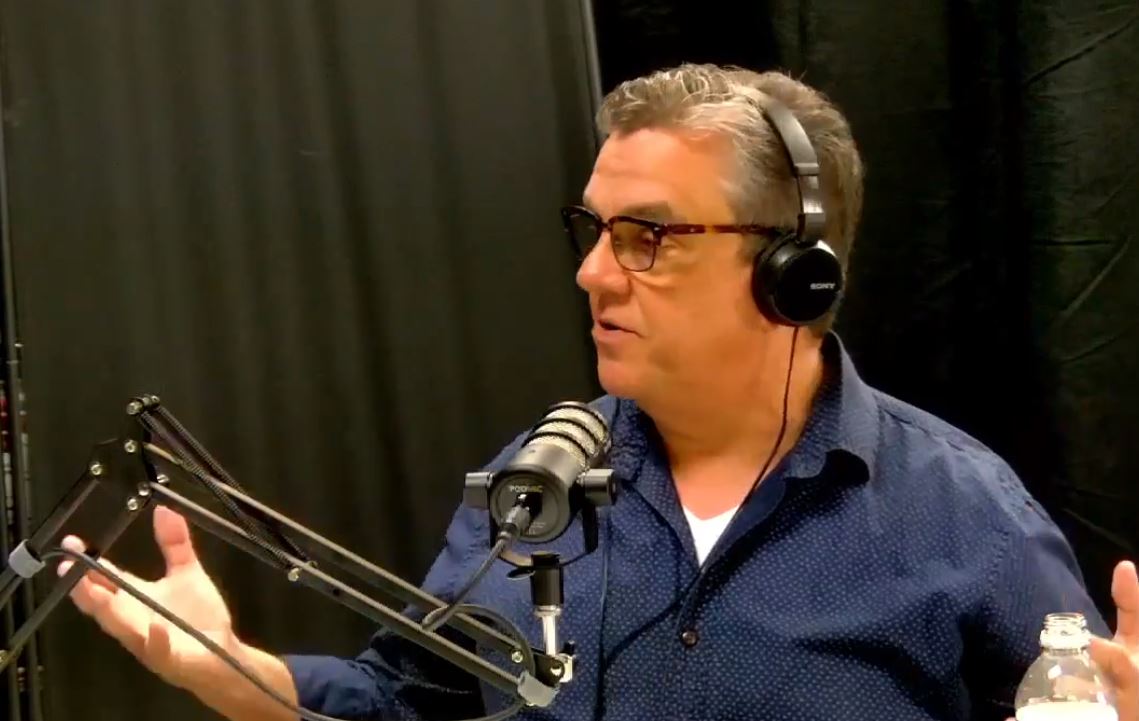Five years have passed since I published, on American Path[o]s, “August’s Long Shadow,” a personal memoir of the events surrounding the 1988 murder of my friend and fraternity brother Thomas Baer (kevinterralbrewer.com/baer/). Looking back, I am struck by the degree to which this one written piece has impacted my conception of who I am and certainly of who I was. My blog is a simple hobby and, admittedly, one on which I expend little energy. With retirement approaching, I daydream that someday it may yet become a going concern, but for now I repost my old research papers and pound out the occasional history-related tale, trying to bring dead presidents and others back to life using essentially the same story telling techniques that have kept me in work and, I am told, successfully so, for nearly three decades. I am content with this.
“August’s Long Shadow” is different, though. I didn’t know it at the time, but it is.
As I have said before, the piece is memoir, not history. When I first began writing, in considerable secrecy, in the spring of 2018, I wasn’t so sure. At the time, I did think someone could, perhaps should, write a history of the case. I had the training to do it, on a modest scale at least, and I had personal connections with many of the principals that would make some of the surely voluminous research easier. All of the research necessary for such an undertaking would not be easy, however, and the prospect of wading through the archives of the Knoxville papers; the Knoxville Police Department; and, God forbid, the University of Tennessee, while working a full-time job and raising children, was daunting, especially when the university, in particular, would have no incentive to cooperate with such a project and might arguably have incentives not to. There were other concerns. A history would have to be nearly perfect, scrupulously documented, and, importantly, could not be written without approaching more distant people, some of whom would surely resent the intrusion. That I was not willing to do. As I, myself, observed in the memoir, we all have uneasy relationships with the scars of August 1988. A memoir would be different. I could simply interview a few good friends who were happy to help; double-check my own recollections (several of which were proved mistaken, requiring revisions in the text) surrounding an event that I, after all, did not personally witness; and consider and then relate in prose how that event impacted my life, the lives of those closest to me, and my beloved fraternity. Self-indulgent, perhaps, but it is a blog, after all. That I, at some level, needed to write such an account never really occurred to me until it was nearly complete.
A few years ago, I sought out and wrote an old friend who was an important part of my life in those long ago days, seeking input on this project and writing, “Too many things happened to me at the same time back then (you too, I think).” I never received a reply; the past does not speak to everyone. I almost envy those it spares, because it never stops speaking to me.
So, I had written a memoir, and to my surprise, I discovered that it peeled away multiple layers of my own young adult life. Every day that I worked on the project, I realized more and more that it was, ultimately, a short, focused autobiography of sorts. It became, in the end, a story not only of a tragedy that ended the life of a friend and disrupted a beautiful part of my young world, but also of how other events—my college graduation (with no family present); my first, troubled days in law school; my brother Tim’s devastating A.L.S. diagnosis (the reason for my lonely graduation); and a new and ill-timed relationship with a much loved girlfriend—intersected that awful, empty event at 1800 Lake Avenue and upset the equilibrium of my happy life.
Of the tragedy itself, I can say that my perspective on it defies the passage of time. I can see and almost feel it all: that dreadful night of phone calls, isolated in my apartment in Memphis, cut off from my suffering and bewildered friends; the melancholy November drive across the state with Ron Powers to visit my emotionally wounded fraternity brothers, my girl, and the scene of the crime, a dim warning from F. Scott Fitzgerald—of all people—fluttering in the recesses of my mind, whispering that what I found there might not be as it was when I left it; a far later visit to the same place to confront the ghosts and to acknowledge that it was, indeed and finally, over. I have heard it said that we write to get to know ourselves. That was my experience in 2018. It wasn’t just introspection, either; a young colleague approached me after reading the memoir and said solemnly, “I feel that I understand you better after reading that.”
“That’s funny,” I thought, “I had the same experience writing it.”
My blog has few readers, and for now, at least, I don’t particularly care, but hardly a week goes by that someone, somewhere in the world doesn’t at least open “August’s Long Shadow.” Over the years, this has led to moving and sometimes chilling exchanges. It has put me in touch with Tom’s sister and, indirectly, his father. Several of Tom’s cousins and other relatives and friends have thanked me for writing about him in a way that illuminated a little of his lovely, quirky nature, and that was touching. Others, total strangers, wrote to chat and to share with me their own memories of August 20, 1988. A woman wrote that she was in the condos across Terrace Avenue on the night of the murder and watched the drama unfold from her window. She was, she said, so traumatized that she left U.T. the next day and never returned. A man named John wrote saying he could supply key information about why the murder occurred. He had been in an altercation with Underwood, the killer, the night before and, since he lived near the Phi Kappa Tau house, speculated that Underwood may have thought he was a member of our fraternity. This explained so much if true, as Tom’s assailant had asked for “John” the first time he entered our house that night. The man said he would contact me in a few days with more information and would consent to an interview. When I did not hear anything, I contacted him. He said he had changed his mind and didn’t want to be involved. Finally, a few years ago, a United States attorney for the Eastern District of Tennessee wrote me seeking contact with the Baer family. The killer, predictably, was in custody again, charged with being a felon in possession of firearms, and the government wanted the Baers to have a say in what would happen next. I passed the information on to Tom’s sister, who has become something of a social media friend, but I didn’t follow up. It had been 33 years; the shadow is long indeed.
Human memory is beautiful, painful, and essential to who and what we are. Unfortunately, it is also something of a blunt tool at times, maybe most of the time, maybe always. Reconnecting, not just with what “happened” (always a tricky proposition in academic history) but with what people felt when it happened, can hone our memories and elevate mere chronicle into something worth chronicling. Some say the more emotion we let creep into our memories the less useful they become in any historical sense. Maybe. But who cares? And do we really want to live without that? As David McCullough, a man who spent his life writing with heart about the past once said, ” No harm’s done to history by making it something that someone would want to read.” In exploring and documenting our own pasts and embracing all the happiness and pain we find there, we can discover all kinds of truths and connections that were hidden just out of sight. What better use could be made of writing? That was my experience in recounting my own memories of the death of Tom Baer—a good young man who did good things, loved everyone without judgment, and inspired love in return—and how it has coursed through so many lives over the decades, including the lives of some who, like me, were not there to witness it but nevertheless found themselves swept up in its wake.
K.T.B.
August 2023

